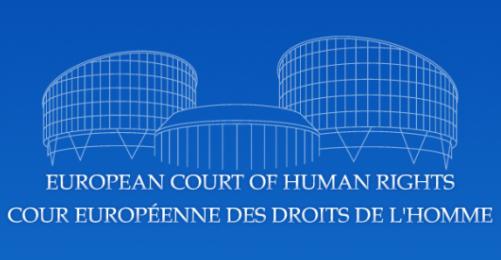The European Court of Human Rights (ECHR) decreed by a four to three majority that the book "The Gypsies of Turkey" written by Ali Rafet Özkan does not contain discriminatory expressions. The book by Prof. Dr Özkan, faculty member of Ankara University, had also been introduced on the website of the Ministry of Culture.
President Judge Françoise Tulkens from Belgium and court board members Nona Tsotsoria from Gerogia and Kristina Pardalos from San Marino voted against the decision that was announced on Tuesday (27 July). Turkish Judge Işıl Karakuş was among the members in favour of the decision.
According to Roma researcher Mustafa Aksu, the book contained expressions that humiliated the Roma, associated them with crime and indecency and evoked prejudice. In June 2001, he had demanded on behalf of the Turkish Gypsy associations to withdraw the book from sales and to destroy the remaining 299 copies in the depot of the ministry.
Thereupon, the Ministry of Culture had a scientific research carried out by the Advisory Commission affiliated to the ministry and informed Aksu that the author would not allow any amendments.
Struggle through all levels of jurisdiction
Aksu on the other hand requested to seize the book and suspend its publication. In September 2002, the Ankara Civil Court of First Instance announced that he should address the ministry. In 2003, the Court of Appeals confirmed that "the expressions used in the book were general statements that did not include all Roma". The Court of Appeals thus approved the local court's decision in December 2003. Subsequently, Aksu opened a case against the Ministry at the Administrative Court. However, that trial was dismissed in April 2004.
In line with the decision of the local court, the Administrative Court concluded that the contents of the book remained within the borders of scientific research and did not constitute an insult to the Roma. Aksu applied to the ECHR in 2004.
Aksu had also complained about a dictionary for school pupils, published in 1998 by a language association and funded by the Ministry of Culture in 2002. He urged the language association on behalf of the Confederation of Gypsy Cultural Associations to remove a number of expressions from the dictionary.
No insult proved
The ECHR agreed that the sections of the book highlighted by Aksu gave the impression of discriminatory and offensive expressions. Yet, the court announced, "examined as a whole, the book did not allow a reader to conclude that the author had any intention of insulting the Roma community".
The ECHR furthermore reminded that the book's "conclusion" pointed to the fact that it reflects a comparative study on the historic and socioeconomic living conditions of Roma citizens living in Turkey.
The court furthermore dismissed the complaint against the dictionary of the Turkish Language Institution. The ECHR was convinced that "the expressions and definitions in question were prefaced with the comment that they were of a metaphorical nature. The Court therefore found no reason to depart from the domestic courts' findings that Mr Aksu had not been subjected to discriminatory treatment because of the expressions listed".
By four to three votes the ECHR conclude that "it could not be said that Mr Aksu had been discriminated against on account of his ethnic identity as a Roma, or that there had been a failure on the part of the authorities to take the necessary measures to secure respect for the applicant's private life. There had therefore been no breach of Article 14[Prohibition of Discrimination] taken in conjunction with Article 8 [Right to Respect for Private and Family Life]". (EÖ/VK)


